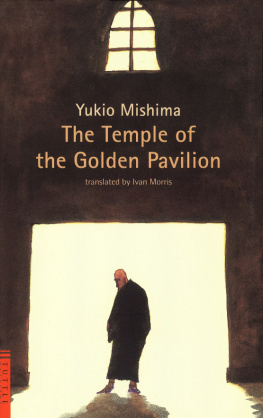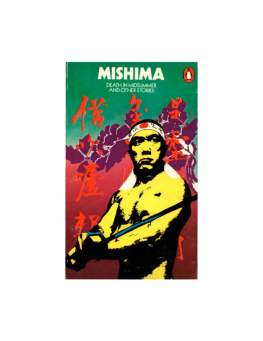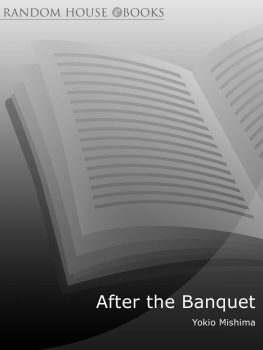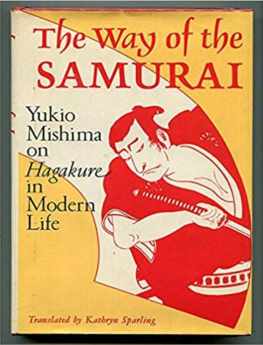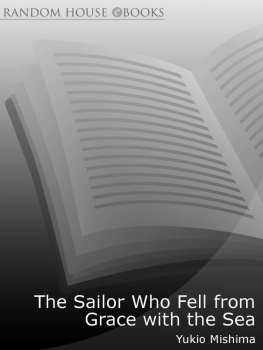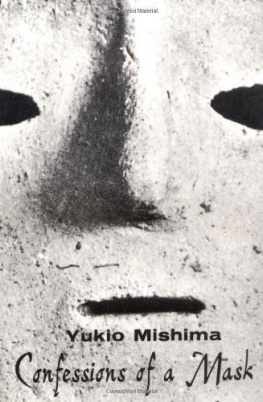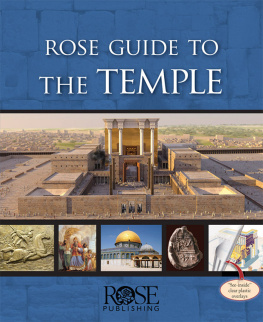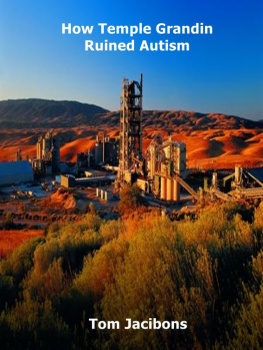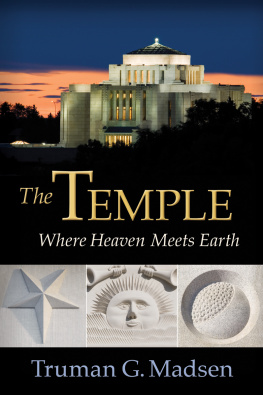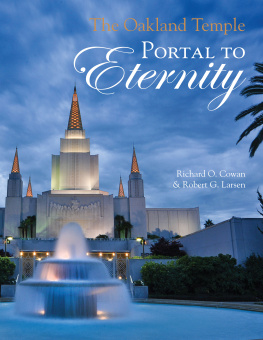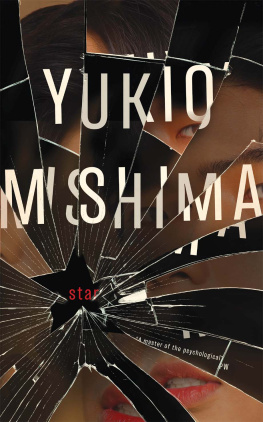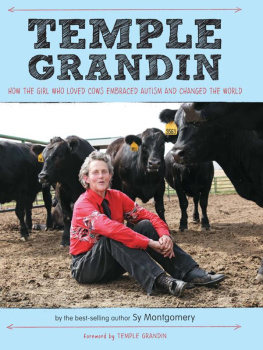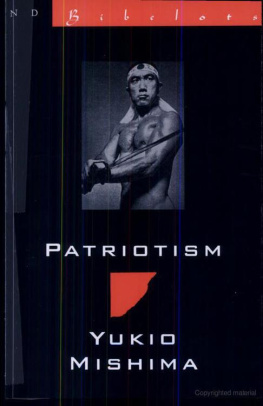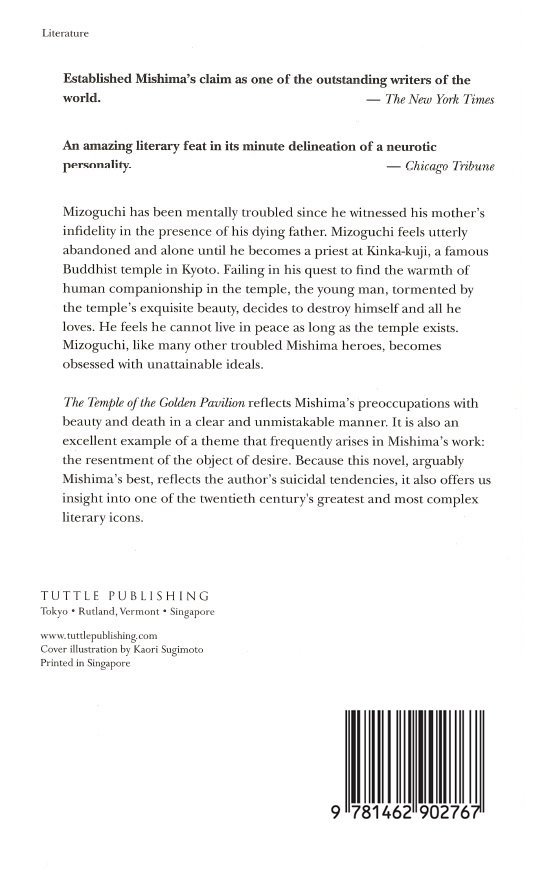
CHAPTER ONE
EVER SINCE my childhood, Father had often spoken to me about the Golden Temple.
My birthplace was a lonely cape that projects into the Sea of Japan northeast of Maizuru. Father, however, was not born there, but at Shiraku in the eastern suburbs of Maizuru. He was urged to join the clergy and became the priest of a temple on a remote cape; in this place he married and begot a child, who was myself.
There was no suitable middle school in the vicinity of the temple on Cape Nariu. At length I left my parents' house and was sent to my uncle's home in Father's birthplace; while I lived there, I attended the East Maizuru Middle School, going to and fro on foot.
The sky in Father's home town was very bright. But each year in October and November, even on days when it did not look as if there could be a single cloud, we would have several sudden showers. I wondered whether it was not here that I developed my changeable disposition.
On spring evenings when I returned from school, I would sit in my study on the second floor of my uncle's house and gaze at the hills. The rays of the sinking sun shone on the young leaves that covered the hillside and it looked as though a golden screen had been set up in the midst of the fields. When I saw this, the Golden Temple sprang into my mind.
Though occasionally I saw the real Golden Temple in photographs or in textbooks, it was the image of the Golden Temple as Father had described it to me that dominated my heart. Father had never told me that the real Golden Temple was shining in gold, or anything of the sort; yet, according to Father, there was nothing on this earth so beautiful as the Golden Temple. Moreover, the very characters with which the name of the temple was written and the very sound of the word imparted some fabulous quality to the Golden Temple that was engraved on my heart.
When I saw the surface of the distant fields glittering in the sun, I felt sure that this was a golden shadow cast by the invisible temple. The Yoshizaka Pass, which forms the boundary between Fukui Prefecture and my own Kyoto Prefecture lay directly to the east. The sun rises directly above this mountain pass. Though the actual city of Kyoto lies in exactly the opposite direction, I used to see the Golden Temple soaring up into the morning sky amidst the rays of the sun as it rose from the folds of those eastern hills.
Thus the Golden Temple was apparent everywhere. In so far as I could not actually set eyes on the temple, it was like the sea. For though Maizuru Bay lies only three and a half miles to the west of the village of Shiraku where I lived, the water itself was blocked from view by the hills; yet there always floated in the air a sort of presentiment of this sea: sometimes the wind would bring with it a smell of the sea, sometimes in rough weather flocks of gulls would swoop down into the nearby fields to take refuge.
I had a weak constitution and was always being defeated by the other boys in running or on the exercise bar. Besides, I had suffered since my birth from a stutter, and this made me still more retiring in my manner. And everyone knew that I came from a temple. Some of the more ill-behaved children used to make fun of me by imitating a stuttering priest as he tried to stammer his way through the sutras. There was a story in one of our books in which a stuttering detective appeared, and the boys used to read these passages to me in a specially loud voice.
My stuttering, I need hardly say, placed an obstacle between me and the outside world. It is the first sound that I have trouble in uttering. This first sound is like a key to the door that separates my inner world from the world outside, and I have never known that key to turn smoothly in its lock. Most people, thanks to their easy command of words, can keep this door between the inner world and the outer world wide open, so that the air passes freely between the two; but for me this has been quite impossible. Thick rust has gathered on the key.
When a stutterer is struggling desperately to utter his first sound, he is like a little bird that is trying to extricate itself from thick lime. When finally he manages to free himself, it is too late. To be sure, there are times when the reality of the outer world seems to have been waiting for me, folding its arms as it were, while I was struggling to free myself. But the reality that is waiting for me is not a fresh reality. When finally I reach the outer world after all my efforts, all that I find is a reality that has instantly changed color and gone out of focusa reality that has lost the freshness that I had considered fitting for myself, and that gives off a half-putrid odor.
As can easily be imagined, a youth like myself came to entertain two opposing forms of power wishes. In history I enjoyed the descriptions of tyrants. I saw myself as a stuttering, taciturn tyrant; my retainers would hang on every expression that passed over my face and would live both day and night in fear and trembling of me. There is no need to justify my cruelty in clear, smooth words. My taciturnity alone was sufficient to justify every manner of cruelty. On the one hand I enjoyed imagining how one by one I would wreck puhishment on my teachers and schoolmates who daily tormented me; on the other hand, I fancied myself as a great artist, endowed with the dearest visiona veritable sovereign of the inner world. My outer appearance was poor, but in this way my inner world became richer than anyone else's. Was it not natural that a young boy who suffered from an indelible drawback like mine should have come to think that he was a secretly chosen being? I felt as though somewhere in this world a mission awaited me of which I myself still knew nothing.
The following episode remains in my memory from this time. The East Maizuru Middle School had spacious grounds, surrounded pleasantly by the hills, and was equipped with bright, modern buildings.
One day in May a graduate of our school, who was now a student in the Maizuru Naval Engineering School, had a holiday and came to visit his old middle school.
He was attractively sunburned and a powerful nose emerged from beneath his uniform cap, which he wore pulled down over his eyes: from top to toe he was the perfect young hero. Now he stood telling his juniors about the rigors of his present life with all its military regulations. Yet, although he was meant to be describing a life that was full of hardships, he spoke in a tone as though he were telling us about the most luxurious and extravagant existence. Every move that he made was full of arrogance, but, for all his youth, he was well aware of the importance of an assumed modesty. His chest, clothed in his braided uniform, was stretched out like the breast of the figurehead on a ship as it cuts its way through the sea breeze. He was sitting on the stone steps that led down to the school grounds. Round about him stood a group of students who listened eagerly to his words, and in the garden beds on the slope the May flowers were in bloom-tulips, sweet peas, anemones, and daisies; and above their heads hung the rich white blossoms of the magnolia tree.
Both the speaker and his listeners were stationary like monuments. I was sitting by myself on the ground a few yards away. Such was my manner. Such was my manner toward the May flowers and toward that pride-filled uniform and toward those bright peals of laughter.
Now this young hero was more concerned with me than with his admirers. It was only I who did not appear to bow before his dignity, and this thought hurt his pride. He asked the others what I was called.

